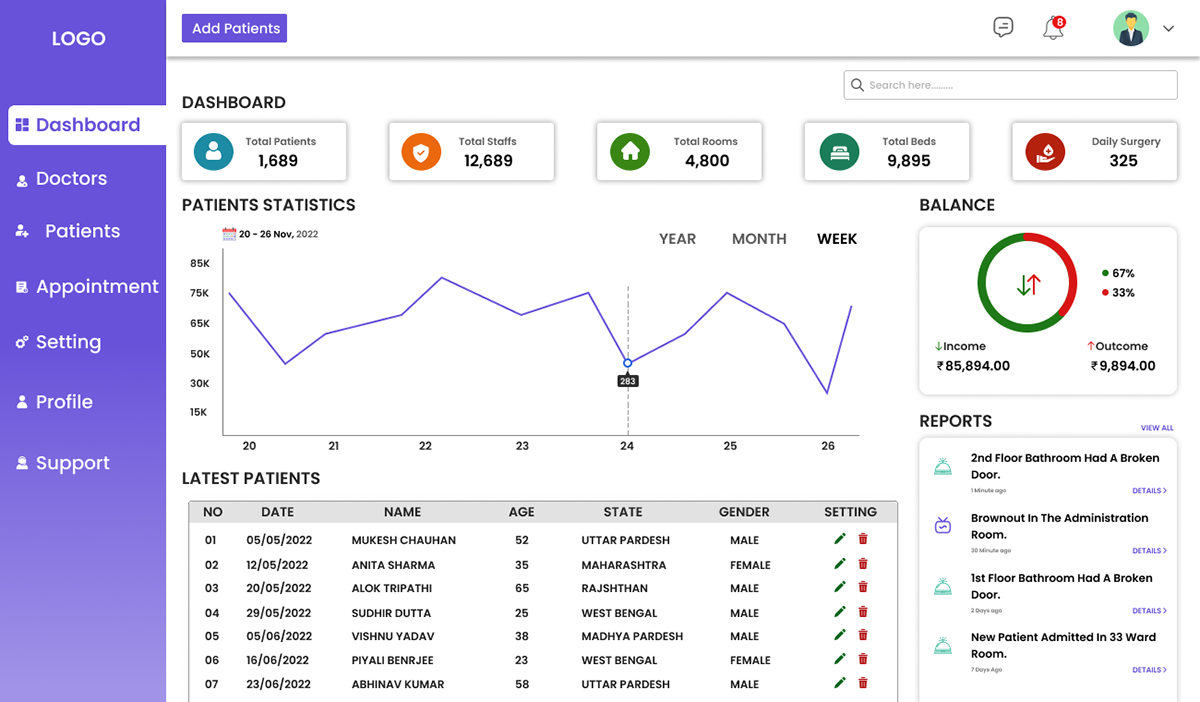Efficiency
The hospital saw a significant reduction in administrative workload, as processes became more automated and streamlined.
In recent years, digital transformation has become a critical endeavor for healthcare institutions worldwide. One such transformation involved the overhaul of a hospital's billing, appointment, and patient management system. This case study will provide an overview of how PHP technology was leveraged to achieve this transformation successfully.
The client in question was a mid-sized hospital with approximately 300 beds, located in a metropolitan area. The hospital was facing several challenges with its existing manual systems for billing, appointment scheduling, and patient management. These issues included inefficiencies, data inaccuracies, and delays in service delivery. To address these challenges, the hospital decided to undergo a digital transformation.
The project aimed to revamp the hospital's existing systems with a web-based application built using PHP technology. The primary goals were:
Streamline the billing process to ensure accuracy and timeliness, reduce errors, and improve revenue cycle management.
Implement an online appointment scheduling system to enhance patient convenience & reduce workload on staff.
Create a comprehensive electronic health record (EHR) system for efficient patient information management and retrieval.
The hospital's billing system was revamped to automate the generation of bills and invoices. PHP scripts were developed to calculate charges based on medical procedures, medications, and other services provided to patients. This automation significantly reduced billing errors and improved the speed of generating invoices. Patients could also access their bills and payment history.
The appointment scheduling system allowed patients to book appointments online, select preferred doctors, and receive email or SMS reminders. PHP was used to create a user-friendly interface where patients could view available time slots and select appointments accordingly. This reduced the workload on administrative staff and improved patient satisfaction.
A robust EHR system was developed to store patient records securely. PHP scripts enabled healthcare providers to input and retrieve patient data efficiently. The system included features such as medical history, lab results, and prescription records. Data security measures were implemented to ensure compliance with healthcare privacy regulations.

The hospital saw a significant reduction in administrative workload, as processes became more automated and streamlined.
Billing errors were minimized, leading to improved revenue collection and financial stability.
Patients appreciated the convenience of online appointment scheduling and access to their medical records.
Stringent security measures ensured the confidentiality and integrity of patient data, complying with industry regulations.
